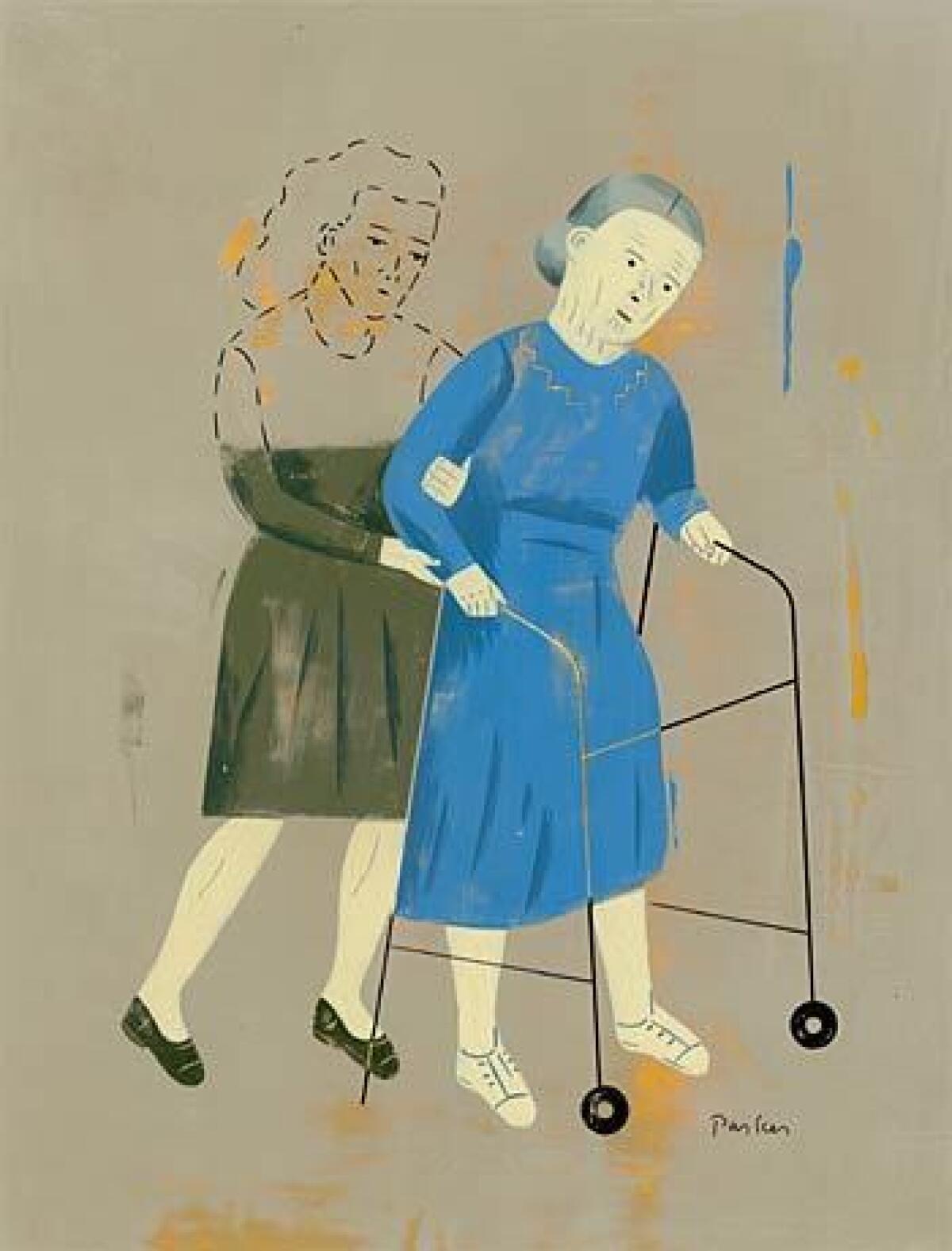Health 411: Aging mom may have dementia, and family doesn’t know what to do

- Share via
My 82-year-old mother has been accusing family members of spying on her, listening in on her phone conversations and entering her home when she’s not there, among other things, off and on for about 10 years. She told her doctor she won’t talk with us. Is there anything we can do? Are there resources and/or free counseling services to help us work out issues with our mom so we can talk with her doctor?
You can try to contact your mom’s doctor to discuss her condition, particularly given that you’re concerned she may be suffering from dementia and unable to properly care for herself.
In some states, doctors will talk to a family member about a person’s condition even without a legal release, says Garvin Reiter, a certified elder law attorney in Portland, Ore., and a member of the National Academy of Elder Law Attorneys. That’s especially true if it is suspected or known that the patient is suffering from dementia.
But if the doctor is aware of a rift in the family, you’re unlikely to get through, Reiter says. “They will definitely put up firewalls,” he said. In that case, you’d need legal documents to gain access.
When it comes to planning for situations like these, you’ll need four legal documents to be fully prepared, said Kathleen Kelly, executive director of the National Center on Caregiving in San Francisco.
The first document is a trust. This allows a family member or friend to manage a person’s assets.
The second is a durable power of attorney for finances, which grants someone authority to make financial decisions on another person’s behalf.
To make decisions about someone’s medical care, you’ll need a separate durable power of attorney for health. Finally, an advance healthcare directive allows someone to specify their wishes so they can maintain control over the type of treatment they do — or do not — receive. An advance healthcare directive may also designate a person to communicate those wishes on their behalf when they are unable to do so.
“Having all of those documents together is the biggest gift a person could [give] their family and friends,” Kelly says.
Although it sounds like your mom may be tough to reason with, don’t assume that setting up a power of attorney for health, which would give you access to her doctors, is out of the question, Reiter says. Dementia is progressive in nature. Until it reaches a stage where all cognitive function is lost, there are moments, albeit decreasing in frequency, when an individual retains the ability to reason. Depending on the stage of her dementia, you may be able to catch your mom at a time when she is lucid and clear-thinking.
To get the necessary legal papers in place, you’ll have to demonstrate that she has transactional competency, meaning your mom understands the transaction in front of her at that moment she’s carrying it out, Reiter says.
An attorney can help establish your mom’s competency and get the legal papers in order. Since laws vary greatly by state, it’s a good idea to work with a local attorney with experience in elder law. You can find one in the online directory of the National Academy of Elder Law Attorneys at https://www.naela.org. You can also search for attorneys with experience in this area on the National Elder Law Foundation’s website. Go to https://www.nelf.org, click on “About NELF” and enter your state under the heading “Finding a CELA.”
If it’s too late to get these legal papers together for your mom, you can consider becoming your mom’s legal guardian or, as it is known in California and some other states, a conservator, says Sarah Clingman, a certified elder law attorney in Columbia, S.C. Guardians have the authority to make medical, legal and financial decisions on someone’s behalf.
But first, you’ll need a physician to determine that your mom is incapacitated, Clingman says. Then an independent lawyer will be appointed to represent her interests. Finally, a judge will decide whether to make you her guardian. Keep in mind that this can be an onerous and expensive process. “Guardianship is a last resort,” Clingman, says.
There are a number of places you can turn to for assistance in these matters.
Geriatric case managers, who plan and coordinate care for the elderly and disabled, can be very helpful in identifying and navigating the range of needed resources. You can find one through the Assn. of Certified Geriatric Care Managers by visiting https://www.caremanager.org and looking under the “About Care Management” tab.
For information about healthcare documents, estate planning and more, try Help4srs.org, operated by the Torrance-based nonprofit Healthcare and Elder Law Programs Corp.
Services can also be located through the Family Care Navigator on the Family Caregiver Alliance’s website, https://www.caregiver.org.
All states have an agency on aging, and the federal Department of Health and Human Services offers an Eldercare Locator at https://www.eldercare.gov to connect families to services for older adults. The department can also be reached at (800) 677-1116.
Zamosky has been writing about how to access and pay for healthcare for more than 10 years.
Got a healthcare dilemma? Email health411@latimes.com or write to Health 411, Los Angeles Times Health, 202 W. 1st St., Los Angeles, CA 90012.
More to Read
Sign up for Essential California
The most important California stories and recommendations in your inbox every morning.
You may occasionally receive promotional content from the Los Angeles Times.













